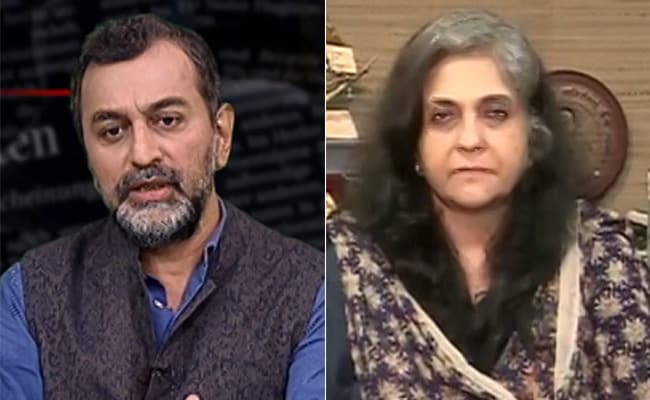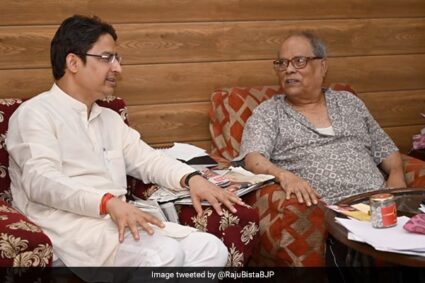

Teesta Setalvad was in police custody for seven days and in jail for 63.
New Delhi:
Activist Teesta Setalvad today said she was questioned only once in six days after she was arrested in June over allegations of “conspiracy to destabilise the Gujarat government after the 2002 riots”.
Teesta Setalvad, 60, was released from jail on Saturday after the Supreme Court granted her bail, saying the police had already got enough time to interrogate her. The court also said there is “no offence in this case over court which bail cannot be granted”, that too when “she is a lady”.
Speaking to NDTV in her first interview since leaving jail, Ms Setalvad said she had expected “due process” and some notice before she was arrested on June 25, not the kind of crackdown that happened.
She was in police custody for seven days and in jail for 63.
The police custody was “very strange”, she remarked.
“Right from that Sunday evening (of the arrest) to next Saturday, when I was sent to judicial custody, I was not called for questioning except once. The rest of the time I was sitting around. No explanation was given,” the activist shared.
She also cited the arrest of fact-checker Mohammad Zubair over a tweet. “We have a set of laws in this country. Those laws need to be applied with some degree of honesty, impartiality and autonomy by the police. The police should not become an arm of the executive. Look what happened to Zubair – so many examples of this “crackdown” and the police getting away without following due process. It can happen to anybody,” Ms Setalvad warned.
Ms Setalvad was in the Sabarmati jail where Mahatma Gandhi’s wife Kasturba Gandhi was imprisoned before India’s freedom. There is a new women’s jail where 200 are held. Only 50 of them are convicted; the rest are awaiting trial.
She said she had expected hostility in jail because of her role in taking 2002 Gujarat rioters to court.
“I was concerned about security. I realized my security lay in living as an ordinary women undertrial. I was at the Women’s Barracks 6 with women, children, pregnant women, young women,” she said. There were also women with chronic health problems and mental health issues.
“Life in jail is never easy. There is a 6 am to 12 noon window when you can be out. Then 3-6 pm. After 6 pm you are inside. Sunday, after 4 pm you are inside.”
She complained that there were not enough “areas of silence” and the library was mostly shut. “It was a running battle to keep it open.”
Ms Setalvad was denied bail by a local court in Ahmedabad, after which she went to the Gujarat High Court. The High Court posted her petition to three weeks later – a timeline that the Supreme Court objected to.
Bail hearings had to be taken more seriously, said Ms Setalvad. “Personal freedom is important. Incarceration cannot be the norm.”
The activist was arrested two days after the court dismissed a plea by her and riot victim Zakia Jafri challenging a probe that cleared Prime Minister Narendra Modi, the then Chief Minister of Gujarat, of any wrongdoing.
Zakia Jafri’s husband Ehsan Jafri, a former MP, was killed in the riots.






